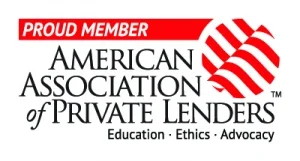Ever wondered about DSCR and its role in commercial real estate financing? Let’s explore the basics of the Debt Service Coverage Ratio (DSCR). We’ll see why it’s key in real estate investments.
The Debt Service Coverage Ratio (DSCR) is a simple financial tool. It checks if a property can pay its debts with its income. This ratio is crucial for lenders to figure out how much they can lend. It helps borrowers make smart choices about investments and loans.
Key Takeaways
- The DSCR measures a property’s income potential against its debt obligations.
- A DSCR greater than 1 indicates good financial health and loan repayment capacity.
- Lenders use DSCR to evaluate both individual property and entire portfolio performance.
- Errors in DSCR calculation can impact loan eligibility and financial assessment.
- Accurate DSCR computation involves carefully analyzing NOI and total debt service.
What is a DSCR Loan?
A Debt Service Coverage Ratio (DSCR) loan is a special kind of real estate financing. It’s for investors who own properties that make a lot of rental income. Unlike regular loans, a DSCR loan looks at if the property can pay its debts with its income. This is great for people whose money situation changes a lot or who have unusual income.
Definition of DSCR
Debt Service Coverage Ratio (DSCR) is a way to check if a property can pay its debts. For example, if a property makes $100,000 a year and pays $50,000 in debt, its DSCR is 2.0. A DSCR of 1.0 means the property just breaks even. But a ratio above 1.0 is good for lenders because it shows the property makes more money than needed to pay debts.
Lenders usually want a DSCR of at least 1.25. They like it closer to 2. This shows the borrower is financially stable and helps get the loan approved.
DSCR Loan Features
DSCR loans have some great features for real estate investors:
- Income-Based Qualification: Borrowers qualify based on the property’s income, not personal income. This is good for seasoned investors, self-employed people, and those with many businesses.
- Variety in Loan Types: There are fixed-rate, adjustable-rate, and interest-only DSCR loans. They fit different investor plans and property income levels.
- Broad Borrower Spectrum: These loans work for many types of borrowers, like entrepreneurs, first-time investors, and retired people.
- Faster Processing: The application and closing are quicker than regular loans.
- Potential for Larger Loan Amounts: You can get bigger loans based on the property’s income. This lets you invest in bigger properties.
In short, a DSCR investment property loan or a DSCR commercial real estate loan is flexible and practical. It uses rental income to qualify and manage the loan well. This makes it a good choice for investors who want to grow their real estate portfolio.
How is DSCR Calculated?
Understanding the DSCR calculation is key for financial analysis. It helps evaluate a company’s debt management. The Debt-Service Coverage Ratio (DSCR) uses a simple formula:
DSCR Formula
The DSCR formula is:
DSCR = Net Operating Income (NOI) / Total Debt Service
To calculate DSCR, you divide the net operating income by the total debt service. For example, if a company makes $1,000,000 in net operating income and has $200,000 in total debt service, the DSCR is 5. This shows the income can cover the debt five times over.
Components of DSCR
To fully understand DSCR, let’s look at its parts:
- Net Operating Income (NOI): This is the income from operations minus expenses. EBITDA is often used as a cash flow proxy in DSCR calculations.
- Total Debt Service: This includes all debt payments like principal, interest, and other costs. It shows a company’s financial commitments accurately.
Lenders usually want a higher DSCR. A DSCR of 1.25x is common, but banks often prefer 2x or higher. A DSCR below 1x means the company can’t cover its debt, showing high financial risk. Lenders adjust the DSCR formula based on their risk level and financing needs.
For a full financial health check, DSCR should be looked at with other ratios. These include EBIT over Interest, Fixed Charge Coverage Ratios, and liquidity ratios like Current and Quick Ratios.
What is a Good DSCR Ratio?
Knowing what makes a good DSCR ratio is key for real estate investors. A good DSCR ratio is usually 1.25 or higher. This means the property makes enough money to pay off its debts easily.
Standard Ratio Guidelines
Standard ratio guidelines say a DSCR above 1.25 is best. It shows the property can handle its debt without trouble. Lenders want a DSCR between 1.2 to 1.25 to make sure the borrower can pay their debts.
A DSCR of 1.00 means the property just covers its debt costs. It doesn’t have any extra money for other expenses. If the DSCR is below 1.00, it’s a warning sign for investors and lenders.
But, a DSCR of 2.00 or more is very strong. It shows the property can pay its debts twice over.
Impact of Different DSCR Values
Different DSCR values affect how lenders see risk and what loan terms they offer. For example, a company with a DSCR of 1.00 might get stricter loan terms than one with a ratio of 1.5 or higher. A higher DSCR means the property or business is safer and more profitable.
Borrowers need to know these DSCR requirements when planning their loans. Loan agreements might include rules based on DSCR levels. For instance, if the DSCR falls too low, lenders might get a share of certain revenues. Keeping a good DSCR ratio helps get better loan terms and keeps finances healthy.
what does dscr loan stand for
Knowing what does DSCR loan stand for helps property investors get the right financing. A DSCR loan is for rental properties. It looks at the property’s income, not the borrower’s personal finances.
The Debt Service Coverage Ratio (DSCR) is a key number. It’s found by dividing the property’s net operating income by its total debt service. This shows if the property can pay its debts.
Lenders want a DSCR of at least 1.2 to 1.25. A DSCR of 1.25 means the property makes 125% of what it owes in debt payments. This shows there’s extra money left over after paying debts.
- A DSCR rental property loan looks at the property’s income.
- A higher DSCR means better loan terms for borrowers.
- Loans might have special rules if the DSCR is too low.
DSCR helps lenders offer loans that match the property’s performance. This makes it easier for investors to find good deals. It also opens up more chances in the real estate market.
Types of DSCR Loans
DSCR loans come in different types, like fixed-rate, adjustable-rate, and interest-only. Knowing the differences is key for real estate investors. It helps them use DSCR loans to their advantage.
Fixed-Rate DSCR Loans
Fixed-rate DSCR loans keep the same interest rate for the whole loan term. This stability helps investors plan their finances better. It’s great for those who want to avoid payment surprises and keep costs steady.
Adjustable-Rate DSCR Loans
Adjustable-rate DSCR loans start with a lower rate that can change over time. They’re good for investors who think their property income will grow. But, there’s a risk of rate increases.
Interest-Only DSCR Loans
Interest-only DSCR loans let you pay only interest for a while before starting principal payments. This can boost cash flow early on. It’s perfect for properties that will likely increase in value or income. But, be ready for higher payments later.
DSCR Loan Benefits for Real Estate Investors
DSCR loans offer many benefits for real estate investors. They allow for larger loans based on property cash flow, not personal income. This is great for experienced investors who aim for big deals and rental income.
They can use rental income to finance more properties. This helps them grow their investment portfolios wisely.
DSCR loans also have lower interest rates than regular loans. This means big savings over time, making the investment more profitable. With a DSCR above 1.0, investors can keep their finances stable and ensure their projects succeed.
The approval process for DSCR loans is simpler. Lenders look at the property’s rental income, not the borrower’s credit. This makes it easier for more investors to get loans, even with less-than-perfect credit.
Investing in multi-unit properties can also boost returns. These properties often have better cash flow than single-family homes. Especially, properties with two to four units are very attractive because they offer more income and higher DSCR ratios.
In summary, DSCR loans are designed for real estate investors. They help maximize cash flow, take smart risks, and increase investment returns.
“Between 2018 and February 2023, DSCR loans accounted for approximately half of the 201,000 Non-QM loans rated by S&P Global.”
DSCR Loan Requirements
Understanding DSCR loan requirements is key for real estate investors. It’s important to know what lenders look for. Let’s explore the main criteria they check.
Minimum DSCR Ratio
The minimum DSCR ratio is a critical factor. Lenders usually want a ratio between 1.2 and 1.25. This ratio shows how much income the property makes compared to its debt.
A ratio of 1.25 or higher means the property can pay off its debt. This makes the loan less risky for lenders. So, a higher DSCR ratio is better for getting a loan.
Property Appraisal
A detailed property appraisal is also needed. It checks if the property’s value matches the loan amount. This ensures the investment is safe.
The appraisal also looks at the property’s rental income. This is a key factor in getting the loan approved.
Creditworthiness and Experience
Even though DSCR loans don’t rely as much on credit, it still matters. Lenders like borrowers with a credit score of at least 620.
Having experience with similar properties also helps. Showing you can handle the investment and make payments on time is important. It shows lenders you’re reliable.
How Do DSCR Loans Work?
DSCR loans are key for real estate investors. They help use income-generating properties. The process is clear from application to funding and closing.
Application Process
The DSCR application process starts with gathering important documents. Lenders need financial statements, proof of property income, and debt service details. It’s crucial to have this info ready for a smooth approval.
Loan Approval Factors
The main loan approval factors are the property’s DSCR and the borrower’s credit. A DSCR of 1.25 or more is usually okay. Lenders also check the borrower’s credit score, which should be at least 620.
They also look at the property’s value. This affects the loan-to-value ratio and risk assessment.
Funding and Closing
After approval, the focus shifts to funding and closing. Here, all details are finalized. The borrower and lender agree on interest rates, repayment plans, and penalties.
Once everything is signed, the money is released. This lets investors buy or improve properties.
DSCR loans offer a solid financial choice for investors. They balance strict rules with big earning potential.
DSCR vs Traditional Loans
When looking at financing options, it’s key to know the differences between DSCR and traditional loans. Each has its own pros and cons, affecting who they’re best for.
Differences in Evaluation
DSCR loans and traditional loans evaluate things differently. DSCR loans look at the property’s income, using the Debt-Service Coverage Ratio (DSCR). This ratio is the property’s Net Operating Income (NOI) divided by total debt service.
On the other hand, traditional loans check the borrower’s personal income, credit score, and down payment. They usually need a down payment of 3-5% or even 20%. If you don’t put down 20%, you’ll have to pay for private mortgage insurance (PMI).
Advantages of DSCR Loans
DSCR loans have big pluses, especially for real estate investors and self-employed folks. They don’t look at your personal income but at the property’s income. This makes them great for those with changing incomes.
Also, you can buy properties under an LLC or corporation with DSCR loans. This can lead to big tax benefits and lower liability. They’re easier to get than traditional loans, too, because they need less paperwork. This is a big plus for those with little personal credit history.
Drawbacks of DSCR Loans
But, DSCR loans have downsides too. One big one is they often have higher interest rates than traditional loans. Traditional loans might offer better rates if you have good credit and a big down payment.
Another issue is DSCR loans are harder to find than traditional loans. This can limit choices for some investors. They also have stricter DSCR ratio requirements, usually 1.25. This can be tough if your property’s income doesn’t meet these standards.
In short, both DSCR and traditional loans have their own good and bad points. It’s important to think about your financial situation and goals to choose the right one for you.
Conclusion
Exploring DSCR real estate financing shows its unique benefits for investors. These loans focus on a property’s income, unlike traditional loans that rely on personal income.
DSCR loans look at the Debt Service Coverage Ratio. This ratio is the NOI divided by the Total Debt Service. For example, a property with $120,000 NOI and $100,000 debt service has a DSCR of 1.2. This means the property can cover 20% more debt than it has.
DSCR loans are easier to qualify for than regular loans. They focus on the property’s cash flow, helping those with irregular income. These loans also offer more flexible repayment based on property income.
But, there are downsides. DSCR loans might have higher interest rates because they’re seen as riskier. Fewer lenders offer them. Also, these loans depend on the property’s steady income.
To succeed with DSCR loans, investors need to be ready. They should have a good credit score, stable income, and understand the property’s cash flow. They need solid financial documents and work with experienced lenders for the best terms.
In the end, property investment with DSCR real estate financing offers unique loan options. By understanding DSCR’s benefits, investors can make smart choices that fit their goals.
Contact Tidal Loans LLC
Are you looking into real estate finance or DSCR loans? Tidal Loans LLC is here to help. They guide you through every step, whether you’re a seasoned investor or a first-time buyer. Getting the right financing is key to reaching your investment goals.
Getting in touch with Tidal Loans LLC is easy. Just call them at 832-757-1262 or email info@tidalloans.com. Their team is ready to offer personalized support and answer any questions about DSCR loans or other financing options. They help you understand DSCR financing, ensuring you make smart investment choices.
Tidal Loans LLC knows the real estate market well. They help you navigate interest rates and lending conditions. With a minimum credit score of 600 and a DSCR ratio of .75, they offer funding for different property types. Contact them today to see how they can help you achieve your financial goals.


